Last week we released OpenSim 4.5 which includes the latest Moco release, 1.3.0. This release includes a new class for modeling muscle paths with polynomial functions, new options for configuring MocoGoals, new transcription schemes, updated examples, and plenty of bug fixes.
The new class FunctionBasedPath was introduced to enable computing muscle (and ligament) length, lengthening speed, and moment arms using OpenSim Functions. Function-based muscle wrapping is an important feature of state-of-the-art trajectory optimization codes used in biomechanics research, and we are excited to bring this functionality to Moco. The MultivariatePolynomialFunction class can now be used to define paths using smooth polynomial functions that depend on multiple coordinates. We have also introduced the utility class PolynomialPathFitter to speed the creation of these polynomial functions from models and experimental motion data. Check out the new examples for Matlab and Python included in the OpenSim 4.5 release to learn how to convert your model to use FunctionBasedPaths. Finally, we’ve updated the models in exampleMocoTrack and exampleMocoInverse to use FunctionBasedPaths, and made other minor changes to improve the quality of the muscle activity solutions in these examples.
Other new features have been added to make customizing problems in Moco more flexible. First, all MocoGoals now support the methods setDivideByDisplacement(), setDivideByMass(), and setDivideByDuration(). These methods can be used to normalize the cost or endpoint constraint value in any MocoGoal by the model’s total center-of-mass displacement, the model’s total mass, and the total duration of the MocoProblem. Second, reference ground reaction forces can now be normalized when using MocoContactTrackingGoal, which may be useful for scaling tracking cost terms to similar magnitudes as other costs (e.g., control effort). Finally, foot-ground contact forces can now be optimized (e.g., maximize contact impulse) via MocoOutputGoal using the new Outputs ‘sphere_force’ and ‘half_space_force’ added to SmoothSphereHalfSpaceForce.
Lastly, we added new transcription schemes to MocoCasADiSolver based on state-of-the-art pseudospectral collocation methods. These schemes solve the dynamics of a model with high accuracy for relatively few collocation points, which can help improve convergence. These can be selected by passing “legendre-gauss-#” or “legendre-gauss-radau-#” to set_transcription_scheme(), where “#” is the number of collocation points in each mesh interval between 1 and 9. Note that this somewhat of an experimental feature, since these schemes currently cannot be used with models with kinematic constraints. Support for kinematic constraints with pseudospectral collocation will available soon in an upcoming API release.
Quick links
Get Moco 1.3.0 by downloading the OpenSim 4.5 release from SimTK.
Learn more about the new features in the OpenSim 4.5 release here.
More details about this release can be found in the CHANGELOG.md and CHANGELOG_MOCO.md files.
